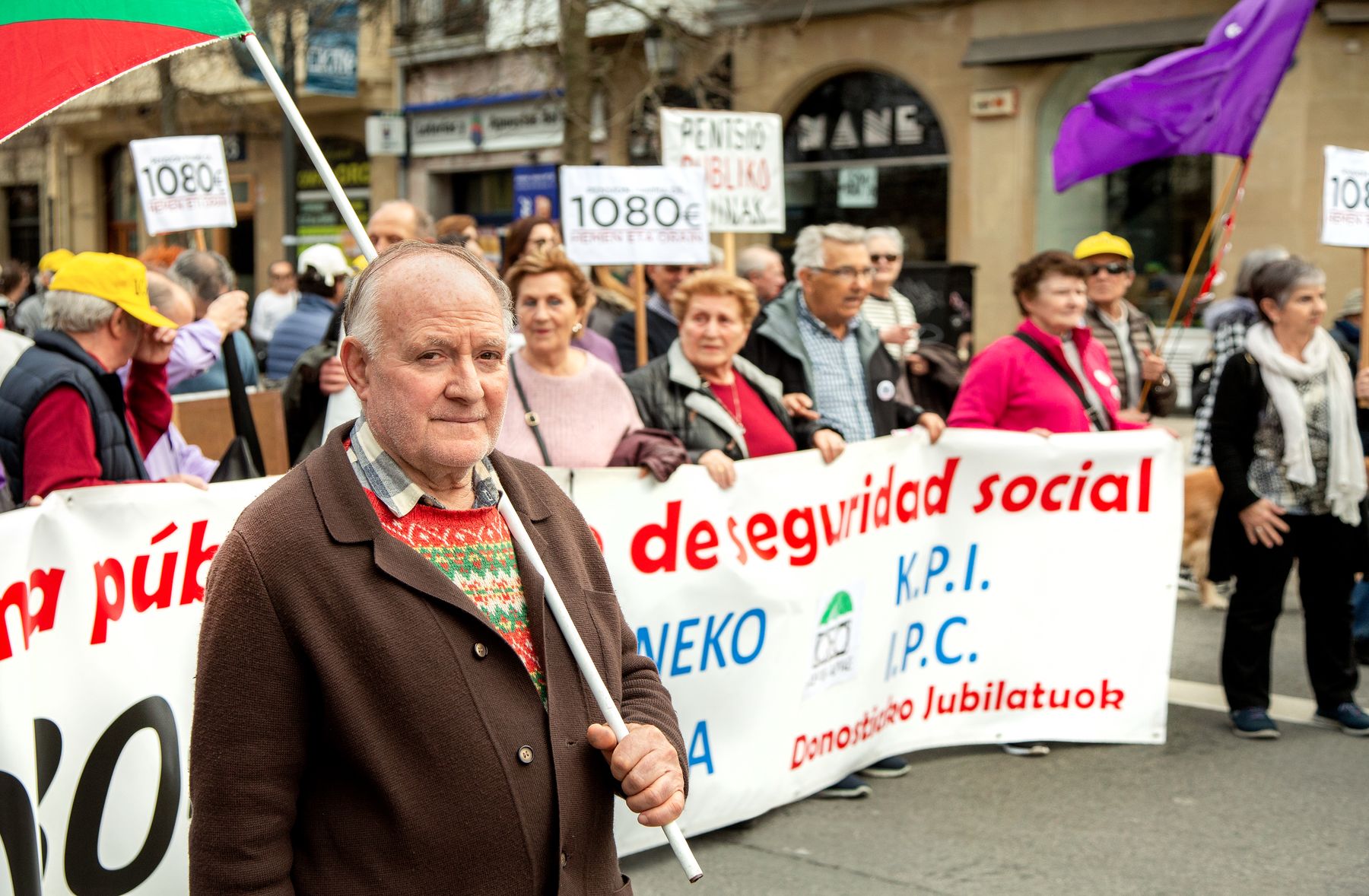Cultural notes of the strike day: inproductivity and "dignified" consumerism
- Thursday has also been a strike day for those who work in the field of culture. The next is a collection of things that you see, hear and feel in San Sebastian.

The rowing song published by Joseba Tapia on the album Quebec already has something that makes it special. Perhaps the economy of resources: some notes of low sound, rowing to paddle, a fairly transparent metaphor, and there you have the hymn of the humble people who talk about the efforts to fight together, of exhaustion, of the temptation to despair, of the conviction to continue along the path they have taken. This Thursday at noon, as the columns that have joined Donostia's strike joined the Boulevard from the four corners of the city, we heard that song sing.
We'll arrive sometime.
oar
Let's go back ...
A striking musician. More than a musician, the truth is that: Mice, Africa or the Euskadi Symphony Orchestra have today closed the list of silent musical instruments. Playing music, as well as any other cultural activity, because for many it is a job. But when we still think about the strike, the labor struggle, the disruption of the normal functioning of the system, other workplaces come to the forefront. Factories, shops, schools, warehouses, shops, post office, transport, hospitals. Concert or movie theaters do not. You neglect very famous artists, and it seems that what they do is a hobby for everyone else. Because conditions are so scarce, that for most people it is essential to have another paid job – and when they stop doing so, yes, society considers them to be real workers, real strikers.
It does not seem easy
It doesn't seem easy...
But most of those who teach culture are not creative. And in particular, in Donostia-San Sebastián there is an important public industry linked to cultural services, as the museum offer and the multidisciplinary programming of the city does not only go ahead. What have the workers in this sector done today?
As an example, I've taken the contemporary culture center Tabakalera, which has been running today. Well, more or less: it's had the doors open, but once inside, I've found the cafeteria and the ground floor shops closed, as well as the exhibition halls -- except those of Kutxa --. In the film, the film scheduled for this Thursday has undergone a change of date, according to a statement. An employee is working at the information point, with lights on in some offices. Here and there, the people sitting, talking, in the middle of a warm silence. Tabakalera is a luxurious lounge that offers the best conditions to be unproductive: good temperature, tranquility, seats, wifi.
I've realized that I've usually come to see something, but that many others use this building all year round, as I'm doing today, adopting a Bartlebyan attitude to the images, the speeches and the practices that the center offers them. Is this passivity the most elemental form of resistance to capitalist machinery? Or just the smoothing that the toothbrush offers itself?
You hear a voice.
when the forces are weakened:
let me roar
Go in the air!...
In search of something that contrasted with the cut-off points emitted today by cultural services, I went to the central temple of cultural consumerism in Donostia. The FNAC of San Martin has remained open throughout the day, from 10:00 to 21:30 hours. I passed after lunch, at an hour when there wouldn't have to be a lot of people on a day's work. And I've been quite surprised by the number of people I've counted in the book section -- about 25 people -- and also with their plurality: a crew of three young people, an adult man, a boy who was mumbling and his mother, a chick shaped like a null, etc.
This variety should not cause amazement in itself, as people from all the plumages pass through the department stores. But also ... What does someone in the FNAC Books Section do on a day of strike at 15:30? I think there are still some ways to break the strike, at least in the heads of some people, who are “more forgiving”. One can be the purchase of books, as the cultural aura is still more dignified than other consumerism.
But is there any difference between buying a five-euro t-shirt in Zara and getting an eight-euro pocket book in the FNAC? No, of course, unless you've finally discarded the idea that culture is beneficial by itself and without nuances.
We'll get to that one time.
Hego Euskal Herrian arrazoi soziolaboralak edo politikoak direla medio, greba orokor bat deitzeak bere jarduera guztia geldiaraztea bilatzen du. Batzuentzat urtarrilaren 30eko greba orokorra arrakastatsua izan da, eta beste batzuentzat porrota, bakoitzaren betaurrekoen arabera.
Urtarrilaren 30eko Greba Orokorraren biharamunean, grebak suposatu duenaren inguruan hausnartzeko tartea hartu dugu Sonia Gonzalezekin.





















